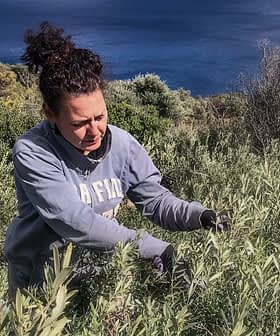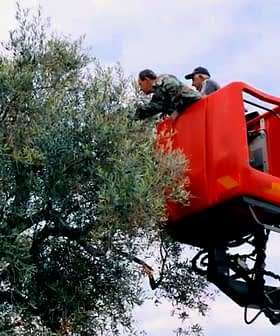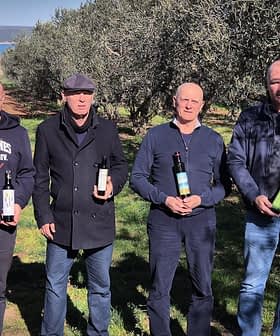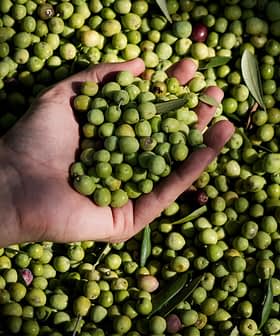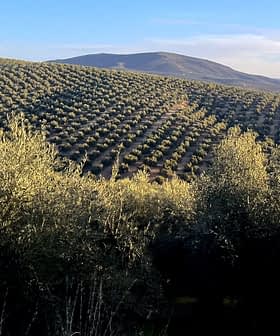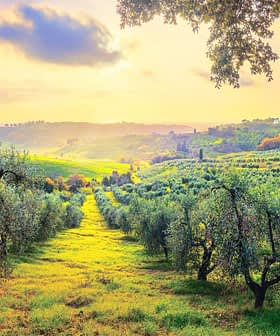Export Ban Impacts Libyan Olive Oil Industry
A ban imposed to olive oil exports in 2017 was meant to protect the domestic production market. Producers say that it is having the opposite effect.
Libyan olive oil producers are struggling due to a 2017 export ban, which has led to an increase in foreign olive oil imports to meet domestic demand. The ban has not been lifted, causing concerns among local farmers and producers about the long-term impact on the industry.
After years of optimism derived from government plans to strengthen the country’s olive oil sector, particularly in export markets, Libyan olive oil producers are now struggling to survive.
Many say this is a direct result of an export ban imposed in 2017, which is having a negative impact on the olive industry.
There is enough production in Libya. I don’t understand why we can’t export anymore.
The restriction of olive oil exports stemmed from an apparent shortage of olive oil supplies for the domestic market. This has been attributed to exports in bulk at low prices, which the government believes did not add value to the Libyan economy.
This shortage has led to an increase in foreign olive oil imports at higher prices in order to satisfy domestic demand. The government subsequently banned exports in order to protect local production and guarantee an adequate stock of locally-produced olive oil to supply the domestic market.
See Also:Africa and the Middle EastAlthough the suspension was meant to be temporary and the government has reinforced its intention to develop the olive oil industry, the ban of olive oil exports has not yet been lifted and there are no signs that it will be lifted anytime soon. This has worried local farmers and producers who think that enough olive oil is produced in Libya to meet both export and domestic consumption demands and that this ban will impact the olive oil industry long-term.
“There is enough production in Libya,” Zahri Al-Bahri, a Libyan olive oil producer who owns his own press in the city of Tarhuna, told Arab News. “I don’t understand why we can’t export anymore.”
Olive cultivation in Libya is ancestral and there are areas where centenary olive trees continue to produce olives for olive oil. Nevertheless, the modern era of olive oil production dates to the twentieth century, when Italians occupied Libya in the 1930s and planted most of the trees that now exist in the country.
“My farm has existed for almost 90 years, when Italians occupied Libya and brought the land back to life,” Ali Al-Nuri, an olive farmer in Tarhuna, told AFP.
Olives were a crop with economic significance before crude oil reserves were discovered in the 1950s. Al-Nuri said that olive trees “saved” Libyans during periods of poor economic performance prior to its discovery.
Libya is the world’s eleventh largest olive producer with an estimate eight million olive trees. Only 20 percent of the country’s olive production is transformed into oil. According to figures from the International Olive Council (IOC), annual production more than doubled from the 1990/91 to the 2018/19 oil campaigns, growing from 7,000 to 18,000 tons.
Olive oil helped diversify Libyan exports, which had relied strongly on crude oil exports since the fall of Muammar Gaddafi in 2011.
In 2013, the Libyan government announced plans to strengthen olive oil exports by improving the quality of olives and olive oil production with a view to increasing the value of global exports and expanding them internationally to boost the country’s economy.
To this end, the government attempted to play a larger role in the support of the entire olive oil production chain, from the grove to the packaging and marketing, for which the development of a national brand name was planned.
The export ban not only has put a halt to the international presence of Libyan olive oils, but has also had repercussions in the industry’s ability to obtain the income, including foreign currency, which is necessary to invest in resources required for the sector’s sustainability, such as replacement parts for equipment, specialized bottling and packing plants and irrigation for the very dry areas where olive trees can be planted.
“We constantly have problems getting spare parts, which are getting expensive because of the collapse of the dinar against the dollar, but also because of the cost of the oil extraction process,” Al-Bahri said.
This have made Libyan extra virgin olive oils less competitive. Additionally, urbanization has become a menace for old olive trees, which now are being cut for charcoal and to create space for construction, something forbidden under Gaddafi’s rule.
The absence of scalable productions has also constrained olives from a white Tuscan olive variety, introduced by Italians, to a very secondary role. Rather than standing alone as a monovarietal oil and maximizing its singular traits, they are now mixed with other varieties for oil production.
Libyan producers are more optimistic about the Arbequina from Spain, which is performing well in the country and expanding its planted surface.
Last November the IOC and Libya signed a collaboration agreement that aims to develop and support Libya’s olive sector by creating and sustaining two laboratories, one for physico-chemical testing and the other for extra virgin olive oil organoleptic assessment. Under this agreement the IOC will oversee the training programs and qualified staff.


